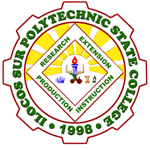This course provides an introduction to the fundamental principles and concepts of algorithm design and complexity analysis. It also provides students with a solid foundation in algorithmic thinking and problem-solving techniques, as well as the skills and knowledge necessary to design, analyze, and implement efficient algorithms for real-word applications. As the skills and knowledge necessary to design, analyze, and implement efficient algorithms for real-world applications.
Reading in Philippine History aims to exposed students to different facets of Philippine history through the lens of eyewitnesses. Students are expected to analyze the selected readings contextually and in terms of its contents. It will guide the students through reading and analyze of texts and require them to write reaction essays of varied length and present their ideas in the other ways.
The course analyses Philippine history from multiple perspectives through the lens of selected primary sources coming from various disciplines and of different genres. Students are given opportunities to analyze the author’s background and main arguments, compare different points of view, identify biases and examine evidences presented in the document. Discussion will tackle traditional topics in history and other interdisciplinary themes that will deepen and broaden their understanding of Philippine political, economic, cultural, social scientific and religious history. The end goal is to develop the historical consciousness of the students so that they will become versatile, articulate, broadminded, morally upright and responsible citizens.
This course provides an opportunity or advance their understanding of research focused on computer science through critical exploration of research languages, ethics, and approaches. The course introduces the language of research, ethical principles and challenges, and the elements of the research process within quantitative, qualitative, and mixed methodologies, including the research methods which can be utilized in the collection and analysis of data.
Students will use these theoretical underpinnings to begin to critically review literature relevant to their field or interests and determined how research findings are useful in forming their understanding of their work, social, local, and global environment.
This course aims at developing basic and potential writing of the computer science students through the level processes of writing creatively from the basic sentences to compositions and the different literary types.
